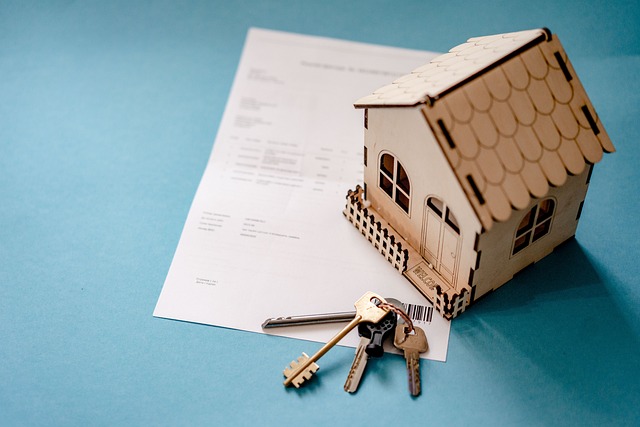Full-property coverage offers businesses comprehensive protection against diverse risks, including physical damage, business income loss, interruption, and liability. It safeguards buildings, fixtures, equipment, and inventory, enabling operational continuity during recovery periods. Tailoring policies to specific needs and location-based risks ensures businesses are prepared for unforeseen events like fires, storms, theft, or natural disasters. Efficient claims handling, with swift temporary coverage, minimizes downtime and financial losses. Future trends in property insurance leverage data analytics and smart building technologies for more precise, proactive risk management.
In today’s unpredictable business landscape, full-property coverage is an indispensable pillar for any company seeking long-term stability. This comprehensive guide delves into the intricacies of property insurance, exploring its pivotal role in safeguarding assets and ensuring resilience against unforeseen events. From understanding key coverage components to navigating diverse policy options, this article equips businesses with essential insights to make informed decisions regarding their protection. Discover how the right property insurance strategy can mitigate risks, facilitate smoother operations, and foster sustainable growth.
Understanding Full-Property Coverage: What It Entails

Full-Property coverage for businesses is a comprehensive insurance solution designed to protect every aspect of your operation within a given location or set of locations. Unlike basic property insurance policies that may only cover specific structures or assets, full-property coverage takes an all-encompassing approach. This includes protection for the physical buildings, fixtures, and equipment, as well as business income loss due to covered events like damage or destruction caused by fire, storms, or other hazards.
The entailment of this type of coverage goes beyond structural integrity. It also extends to business interruption and extra expense coverage, ensuring your business can continue operations during rebuilding or recovery periods. Additionally, full-property insurance often includes liability protection, safeguarding against claims related to accidents, property damage, or personal injuries that may occur on your premises. This holistic approach ensures businesses are shielded from a wide range of financial risks, providing peace of mind and stability in an unpredictable world.
Benefits of Comprehensive Property Insurance for Businesses

Comprehensive property insurance is an invaluable asset for any business, offering a safety net that protects against unforeseen events and ensures stability. This type of coverage goes beyond basic policies by shielding businesses from extensive financial losses stemming from damage or destruction to their physical assets, including buildings, inventory, equipment, and even valuable belongings. By investing in full-property coverage, businesses can rest assured knowing they’re prepared for the unexpected, whether it’s a fire, natural disaster, or vandalism.
The benefits extend further than just financial protection. A robust property insurance policy provides peace of mind, allowing business owners to focus on growth and success without constant worry about potential setbacks. It also offers flexibility in terms of coverage options, allowing businesses to tailor their policies to meet unique needs. This adaptability ensures that every aspect of a company’s physical operations is secured, fostering an environment where owners can confidently pursue expansion and innovation.
Key Risks and Perils Covered Under Full-Property Policies

Full-property coverage for businesses offers a comprehensive suite of protections against various risks and perils that can disrupt operations, damage assets, and lead to significant financial losses. These policies typically cover a wide range of hazards, including but not limited to fire, storms, floods, earthquakes, theft, vandalism, and even natural disasters like hurricanes or tornadoes. For businesses operating from commercial spaces, this means safeguarding their buildings, inventory, equipment, and other valuable assets.
Key risks such as property damage or destruction are addressed with policies that provide reimbursement for rebuilding or repairing structures and replacing lost or damaged belongings. Additionally, full-property insurance may include liability coverage, protecting against claims of bodily injury or property damage to third parties. This is crucial for businesses to mitigate the financial impact of lawsuits or accidents on their premises. Moreover, business interruption coverage is often included, offering financial support during periods when operations must cease due to covered events, ensuring continuity and recovery.
Different Types of Commercial Property Insurance Options

Commercial property insurance is a crucial safety net for businesses, offering diverse options tailored to specific needs. Among the key types are all-risk coverage, which protects against most perils, including fire, theft, and natural disasters, providing comprehensive peace of mind. Additionally, there’s specified perils coverage, a more limited option focusing on specific risks like fire or flooding, often a cost-effective choice for businesses with less diverse concerns.
For operations involving valuable equipment and inventory, extended property insurance is ideal, ensuring protection during transit and in storage. Business owners also have the option of choosing replacement cost value coverage, which pays out based on the cost to replace damaged or lost assets, or actual cash value, which accounts for depreciation, offering a more conservative approach.
How to Choose the Right Full-Property Coverage for Your Business

When selecting full-property coverage, it’s crucial to understand your business’s unique needs. Start by assessing the type and value of assets your business owns. This includes physical structures, inventory, equipment, and any valuable personal property. Different properties require varying levels of protection, so tailor your policy accordingly. For instance, if you run a retail store with high-value merchandise, opt for extensive coverage to safeguard against theft or damage.
Consider the location of your business as well. Natural disasters like floods, earthquakes, or hurricanes can pose significant risks, necessitating specific coverage. Research and compare various property insurance plans offered by different providers. Look into factors such as deductibles, coverage limits, and additional protections like business interruption or extra expenses. Choose a policy that provides comprehensive relief and ensures your business’s resilience in the face of unforeseen events.
Case Studies: Successful Claims Handling and Its Impact

In the realm of business risk management, successful claims handling is a game-changer, showcasing the true value of full-property coverage. Case studies reveal that swift and efficient claim processing can be a differentiating factor for businesses facing unforeseen challenges. For instance, a manufacturing company, insured under comprehensive property insurance, experienced a severe fire outbreak. The insurer’s prompt response, including immediate temporary coverage, allowed the business to continue operations while rebuilding, minimizing downtime and financial loss.
This positive impact extends beyond monetary savings. Effective claims handling can foster client loyalty and enhance a business’s reputation. By settling claims fairly and efficiently, insurers demonstrate their commitment to policyholders, encouraging continued trust and partnerships. Such experiences highlight the critical role of robust Property Insurance in not just protecting assets but also supporting businesses through recovery, ultimately contributing to their resilience and success.
The Future of Property Insurance for Commercial Properties

The future of property insurance for commercial properties is shaped by evolving business landscapes and advanced technologies, promising a shift towards more tailored and comprehensive coverage options. Insurers are leveraging data analytics to assess risks more accurately and offer customized policies that cater to specific industry needs. This personalized approach ensures businesses receive protection aligned with their unique assets and operations.
Additionally, emerging trends such as smart buildings and the Internet of Things (IoT) are driving innovations in property insurance. Integrating these technologies enables real-time risk monitoring and early detection of potential hazards, enhancing proactive loss prevention. As businesses adapt to these changes, so too will property insurance, becoming more dynamic, responsive, and aligned with the future of commercial operations.
